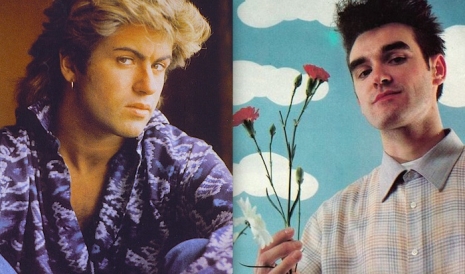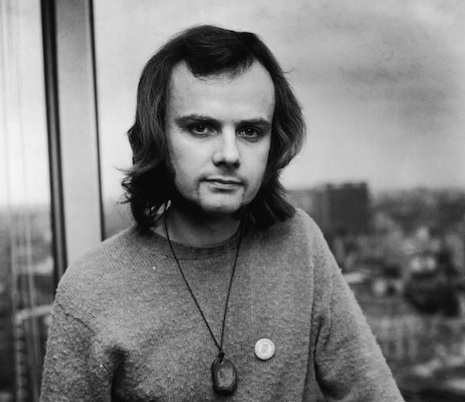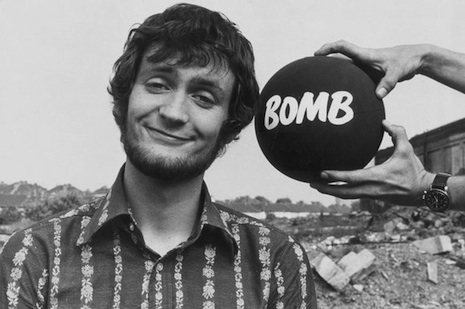
In May 1984, George Michael and Morrissey appeared alongside the unhip, uncool and utterly square antique DJ Tony Blackburn on BBC youth programme Eight Days A Week. The show was a weekly round-up of the latest music, film and book releases as pecked over by a trio of celebrities. It was aimed at a young happening audience with the intention of fulfilling the ye olde BBC charter obligations to “educate, inform and entertain” (perhaps not necessarily in that order).
The week George appeared on the show he was storming up the UK charts alongside Andrew Ridgeley as Wham! with their hit single “Wake Me Up Before You Go-Go,” while Morrissey with bandmates The Smiths were just about to release their song “Heaven Knows I’m Miserable Now.” And Blackburn—well, he was still unutterably anodyne, nauseating and the very establishment edifice these two young artistes were (in their own ways) rebelling against—no matter how much Blackburn sought credibility by pronouncing his deep love of soul music.
At the time of its broadcast, the fey, young aesthete Morrissey would have been seen as the “cool” one. But in truth it’s George Michael who steals the show with his honesty, sensibility and utter lack of pretension. He says it as it is and plays to no gallery as both Morrissey and Blackburn were wont to do.
The topics up for review the week this trio appeared were Everything But The Girl‘s debut album Eden, the crap movie that film producers Golan & Globus called Breakdance (aka Breakin’) and a book about Joy Division called An Ideal for Living: A History of Joy Division by Mark Johnson. While Morrissey does Morrissey whilst talking about another Mancunian band, it is George Michael who delights with his (low) opinion of pompous English rock scribe Paul Morley and surprises by revealing his love of the brooding quartet. While the show’s host Robin Denselow (probably an apt surname) asked, “George, I wouldn’t imagine you as a Joy Division fan, maybe I’m wrong?”
George: Ah, you might be wrong! This book, just became incredibly suspect for me, the minute I saw…
Denselow: You do like them?
George: I do like them, yeah. It became very suspect when I saw that it was partially, a lot of the contributions were from a gentleman called Paul Morley.
Denselow: You don’t approve of Paul Morley?
George: You’d need a book a lot thicker than that to list that man’s ideas or hangups, whatever you’d like to call it. It became very, very pretentious, in so many areas, I actually didn’t finish it, I did not get anywhere near finishing it. And I actually really liked Joy Division, or particular their second album Closer. I thought Closer, the second side of Closer…it’s one of my favorite albums, It’s just beautiful.
Watch George Michael & Morrissey talk pop, film and books, after the jump….







